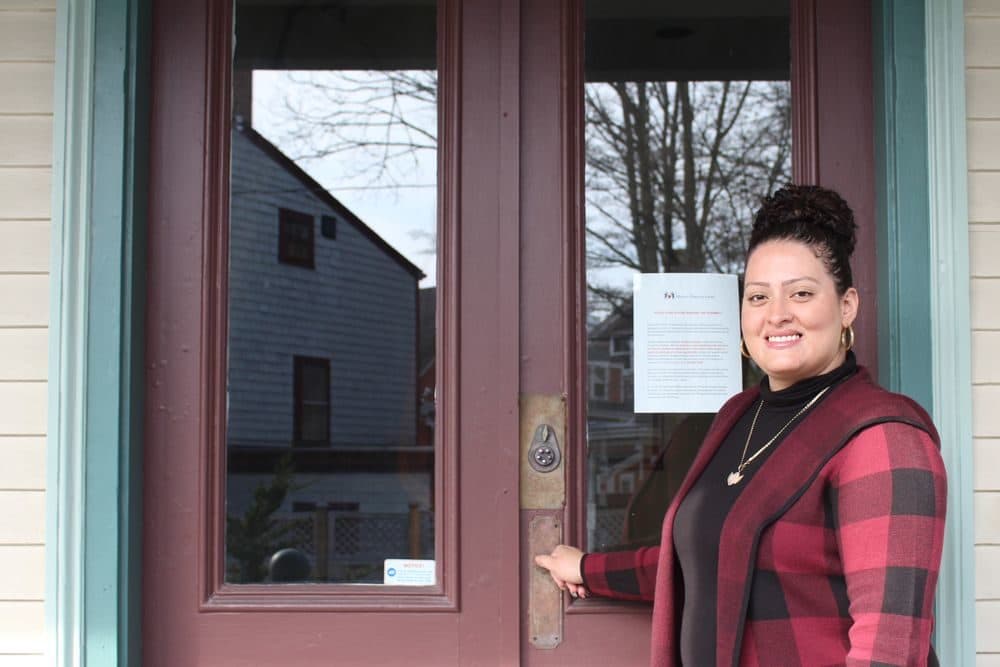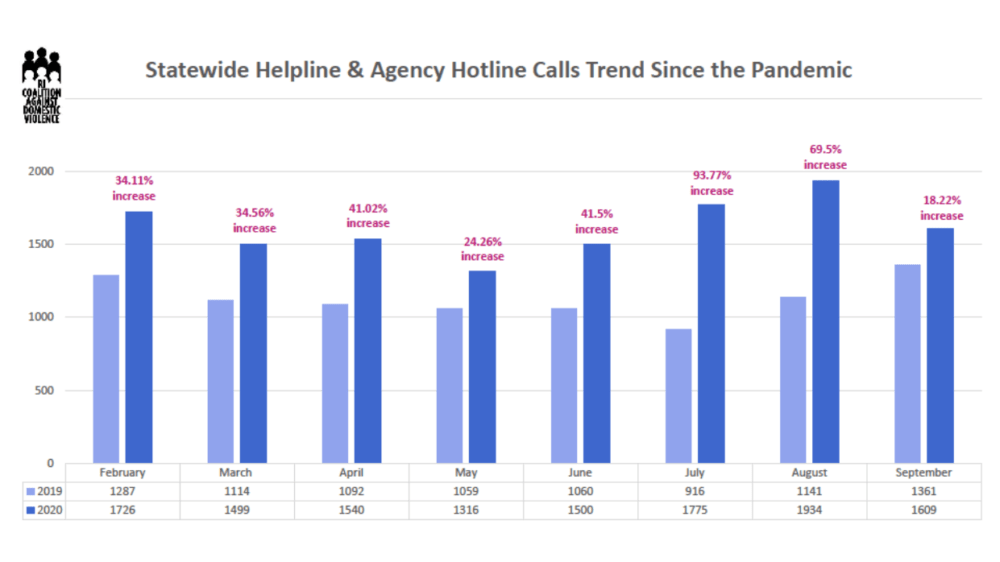Advertisement
Domestic Violence Advocates Describe Increased Demand For Support Services During Pandemic

Every day, Neyda DeJesus answers calls from domestic violence survivors seeking help. One of her first questions is always the same: “Are you in a safe place to talk to me right now?”
DeJesus is the residential director at the Women’s Resource Center, a domestic violence prevention agency in Newport. She runs the center’s 12-bed emergency shelter, as well as its transitional housing program, where domestic violence survivors and their children can stay for up to two years while they look for a safe, permanent home.
Even before COVID-19, DeJesus said, the center couldn’t keep up with requests for housing.
“There's never enough beds, whether we have a high increase in calls or a decrease in calls,” she said. “We can't serve everyone because we just don't have enough beds.”
Since the pandemic began, the problem has only gotten worse. Last summer, the Women’s Resource Center rented additional space to double the emergency shelter’s capacity. With those extra beds, the center managed to shelter twice as many people last year as it did the year before.
But Executive Director Jessica Walsh said demand for housing still far exceeded — and even now, continues to exceed — what her agency can provide.
“Suddenly, having to be home 24/7 with a person who was abusive became very untenable and very unsafe. And so the requests for shelter just skyrocketed,” Walsh said.

That was true statewide and nationally. The Rhode Island Coalition Against Domestic Violence, which is made up of ten member agencies including the Women’s Resource Center, kept its 24-hour helpline open throughout the pandemic. During some months in 2020, calls were up 90% compared to the previous year.
And advocates say there’s been an increase in how much support survivors need. While the demand for shelter has increased at agencies like the Women’s Resource Center, so have requests for other services, like counseling, support groups and help with public benefits.
“All of a sudden, it felt like every client had an acute need because suddenly all of the systems that they were using to provide for their families, to survive, to make ends meet, had different roles,” Walsh said. “Nobody knew how to access the supports that they needed.”
Walsh said clients who previously would have needed only a couple services, like counseling or legal assistance, were also looking for help with things like childcare, unemployment benefits, transportation, or even getting basic grocery items.
Advertisement
Walsh and her staff have also seen new trends in the kind of abuse they’re responding to. People often think of domestic violence as just physical violence, but it can also include financial, emotional or psychological abuse.
“Financial abuse is one of the big reasons why folks who are experiencing domestic violence either stay or return to an unhealthy situation,” Walsh said. “Because it's hard, it's often near impossible to be financially independent.”
That’s been especially true this year, she said, as many people lost jobs.
In more than one instance, there have been cases of abusers invoking COVID-19 as a reason to monitor their partner’s every move, or ignore a survivor’s visitation rights with their children. And many victims are removed from their usual support systems or networks of friends, which can make it harder to access help.
Walsh said the isolation and hyper-vigilance sparked by the coronavirus have also been challenging for many survivors who are no longer with an abusive partner, and even years into their journey to healing.
“Those experiences of the pandemic really mimicked and mirrored some of the experiences of being in an abusive relationship,” she said. “And so even folks who were no longer in those relationships were feeling triggered and needed our support.”
Advocates say these emotional scars of the past year won’t suddenly disappear, even as routines go back to normal. Tonya Harris, the executive director of the Rhode Island Coalition Against Domestic Violence, called the pandemic “a crisis layered on top of a crisis” for domestic violence survivors.
“The victim is now recovering from a pandemic, and also recovering from being isolated, from intimidation, from possible abuse, from children witnessing — which is another layer,” Harris said. “These are all things that victims are going to work through and will need to work through in addition to everything else that will be happening, such as trying to find a job again.”
On the ground in Newport, Walsh said there are likely some people who didn’t feel free to call for help over the past year, but may need support moving forward.
“As much as we were seeing an increase in calls ... I still believe we saw the tip of the iceberg of what was happening for folks,” she said.
And Walsh said her team will be ready, as they have been throughout the pandemic, to help survivors begin healing.
This story is a production of New England News Collaborative. It was originally published by The Public's Radio in Rhode Island on May 5, 2021.
This segment aired on May 14, 2021.